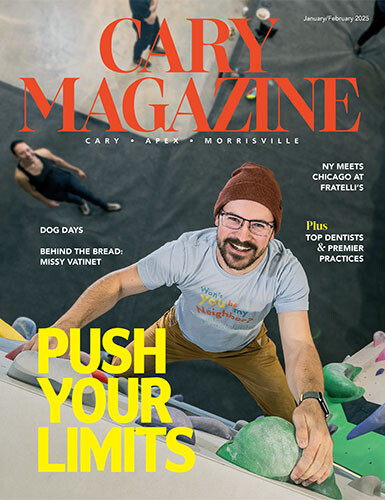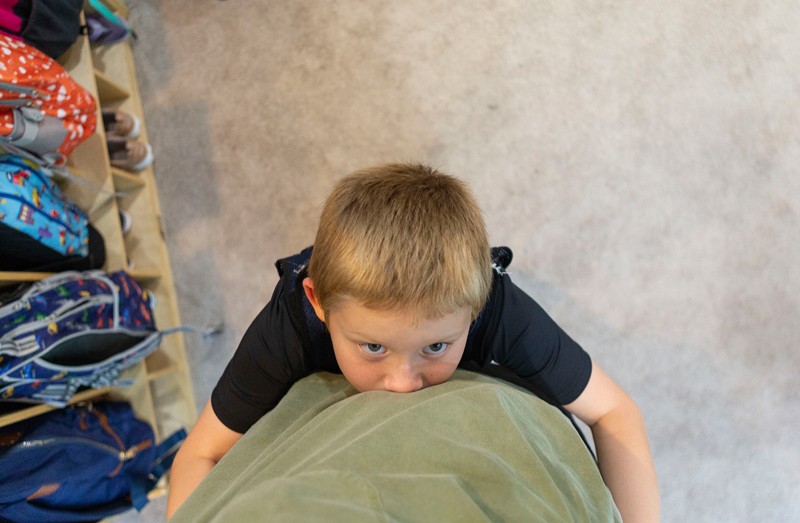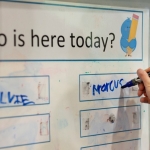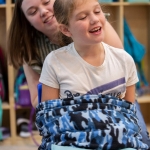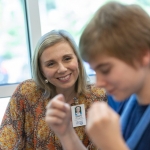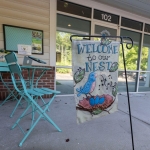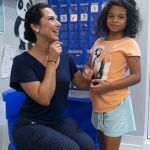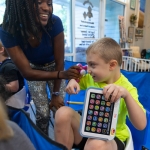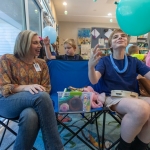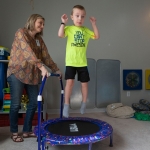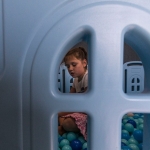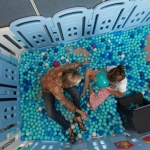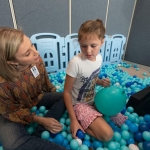When Erin O’Loughlin’s son Marcus was diagnosed with autism, she knew he would need assistance for the rest of his life. With her husband, she began researching possibilities for her son’s future.
“We were getting worried. We started looking further down the line as to what’s going to happen when we’re no longer there,” O’Loughlin said. “We realized there’s just not a lot of options out there for adults with autism.”
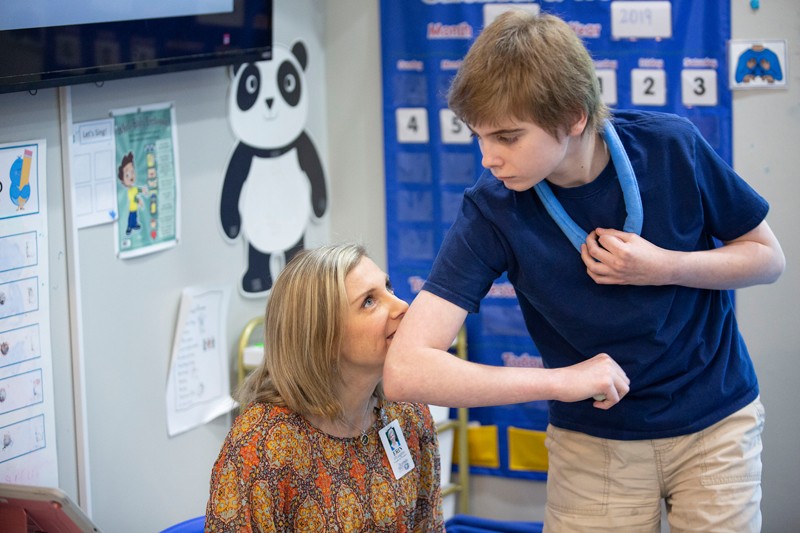
Erin O’Loughlin, founder of 3 Bluebirds Farm, says her son Marcus likes to get a person’s attention by putting his elbow in their face. He also likes to wear things attached to his clothing and around his neck to fiddle with, she says.
O’Loughlin knew she had to take action. With a career in marketing and fundraising for nonprofits, it was time to fight for her own cause. After visiting several residential communities across the country, she established what would eventually become 3 Bluebirds Farm in 2012.
“I’ve always been a social activist by nature,” O’Loughlin said. “I knew that if we were struggling, then other people were, too. I realized quickly after I founded the organization that this is no longer about my son. This is about the population of people living with autism and their families.”
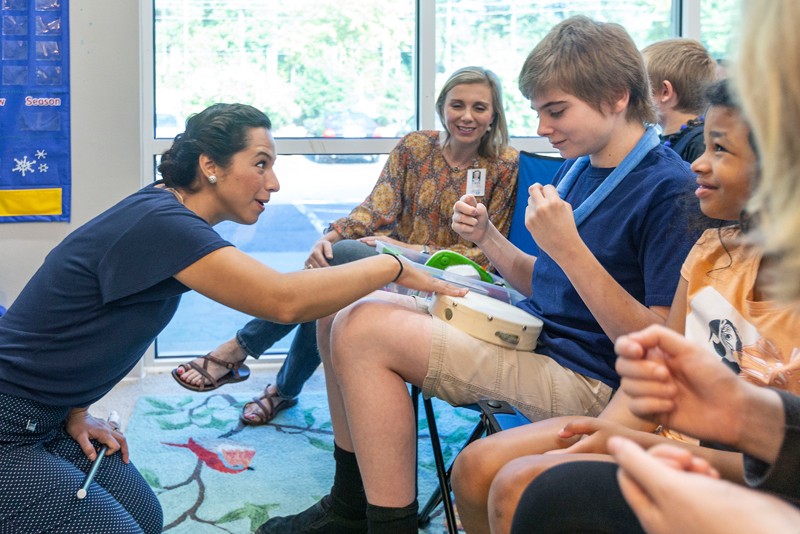
Andrea Rasmussen, director of programs, uses a tambourine to connect with Marcus O’Loughlin during a group session at 3 Bluebirds Farm.
As its long-term mission, the nonprofit plans to establish a self-sustaining, residential farming community for autistic adults. The goal is to offer a home and meaningful work to 20 residents and their full-time caregivers.
While O’Loughlin and her team work towards making that dream a reality, the nonprofit’s focus rests on its child and teen programs. Both Camp Bluebird, a track-out and summer program for autistic children, and the Take Flight Club for teenagers, are based in Holly Springs.
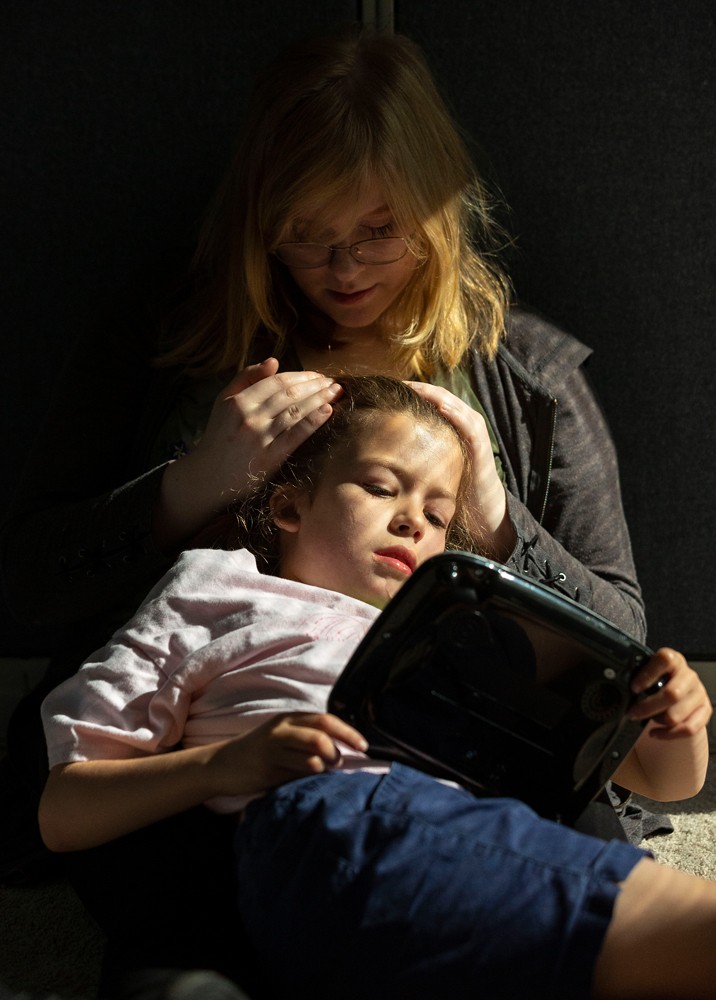
Jordan O’Loughlin and Sloan Daughtry snuggle together in the sunlight with a toy.
When 7-year-old EJ Kozlow knows it’s time for Camp Bluebird, he responds with unfettered enthusiasm, smiling from ear to ear and jumping up and down. His mother, Ayanna Kozlow of Cary, enjoys the camp as much as her son.
“Knowing that you can send your child to a place where they’re happy and they’re loved, it’s just invaluable,” she said.
The Take Flight Club invites autistic teens to build social skills through various activities, including cooking classes, art, music and dance, as well as volunteering in the community.
Kara Leinfelder Meyer’s son Julian, 15, is a regular club member. Over the past year and a half, Julian’s confidence has soared as he formed friendships with the other teenagers in his group.
“His ability to handle himself socially has changed,” the Raleigh mom said. “Previously, he would get agitated easier in a social setting, but he is currently doing much better in that regard.”
These success stories encourage the staff of 3 Bluebirds Farm as they continue to work toward an environmentally sustainable agricultural community for adults on the autism spectrum.
For autistic children in North Carolina, the government requires health plans to provide coverage for screening, diagnosis and treatment. Government services that facilitate the lives of autistic children and their families come to a screeching halt once the individual turns 22. The cut-off age, or what O’Loughlin refers to as “the cliff,” often destabilizes the lives of these young adults.
3 Bluebirds Farm will host its annual ball Saturday, Nov. 2, at the Renaissance Raleigh North Hills Hotel. Tickets to the fundraiser are $125 and available at 3bluebirdsfarm.org/annual-gala.
Last year, the event raised $74,000. This November, the organization is working hard to meet the $100,000 mark.
Looking for another way to support 3 Bluebirds Farm? Volunteers are always welcome at Camp Bluebird; for details visit 3bluebirdsfarm.org.
“There’s a million and one services for children, but you don’t grow out of autism,” O’Loughlin said.
She says it’s also important to understand that not everyone with autism is the same. Autism affects individuals differently and to varying degrees. Some are able to live independently, while others need lifelong assistance.
“I love the beautiful stories of the high-functioning adults with autism who overcome obstacles and go to school and get a job. They should be celebrated,” she said. “But we also need to tell the stories about the 210-pound adults with autism living with their parents who are non-verbal, not toilet trained and aggressive. Tons of those families exist.”
Beyond the residential aspect of the farm, O’Loughlin is hard at work planning the infinite possibilities to keep it self-sustaining. Microbusinesses would include a collaboration with local farm-to-table restaurants to provide produce and a coffee shop where residents could sell their artwork.
“Bluebirds represent happiness and peace and hope,” said O’Loughlin, a lifelong bird lover. “The nest represents a home, and the eggs represent hope. We’re creating a home for those who need it.”
